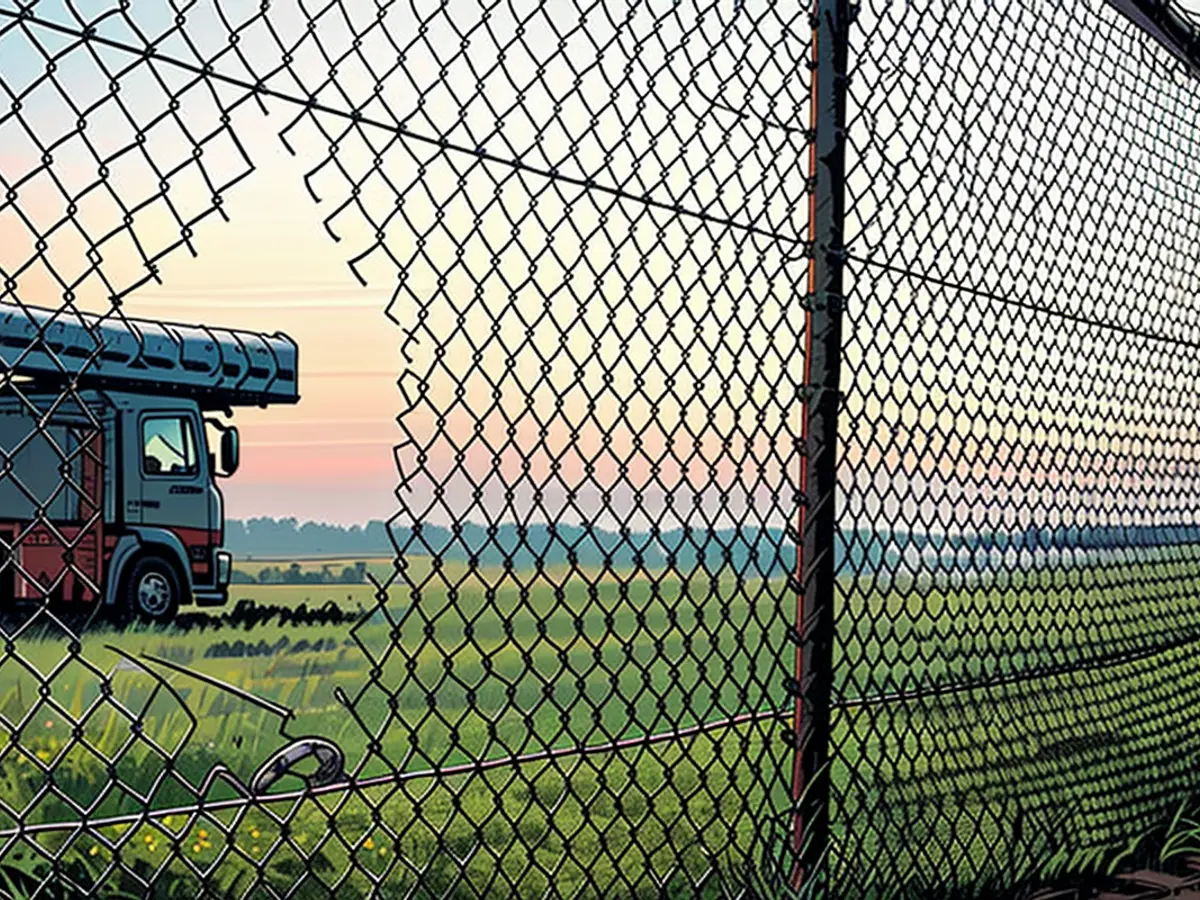"German airports have a security problem"
Activists of the Last Generation paralyze airports in four German cities. Using bolt cutters, they cut through fences and gain access to the runways. Are Germany's airports too poorly secured? Yes, says aviation expert Heinrich Großbongardt.
Activists of the Last Generation break into four German airports early in the morning and glue themselves to the runways. In Cologne/Bonn, operations have to be temporarily suspended. How can such actions keep happening?
It's simply because German airports have neglected their outer security for many years. At many airports, the outer boundary is just a chain-link fence. Maybe there's some barbed wire on top to prevent anyone from climbing over. But that doesn't help when people use bolt cutters to cut through the fence and climb through.
Do Germany's airports have a security problem?
Germany's airports certainly have a security problem. It can't be right that unauthorized people can so easily gain access to the runway. While the activists of the Last Generation are annoying, they're not dangerous. But we live in uncertain times, and if I think about terrorists or saboteurs using this route, it's frightening.
How can airports be protected from terrorist attacks and acts of sabotage?
First, there needs to be a fence made of so-called double-stick mesh that can't be cut through as easily. Behind that, there should be another fence, creating a kind of neutral zone where intruders can be apprehended by federal police or other security personnel. Additionally, electronic security in the form of cameras and sensors is needed to detect and report any attempts to tamper with the fence. This combination is already a proven security concept in the industry.
Why isn't this already in use at airports?
This is partly due to a lack of risk awareness, but of course, there's also a reluctance to spend the significant funds required for implementation. For example, a fence like this would be very expensive for an airport like Frankfurt with its approximately 30-kilometer-long outer boundary. However, each individual terrorist attack would be far more costly in its consequences.
Do you see the danger of terrorist attacks and acts of sabotage at German airports increasing at the moment?
Actions like those of the Last Generation or the hostage-taking at Hamburg Airport last November show at least how vulnerable our airports are. There is therefore an urgent need for action. We must not delude ourselves into thinking that such opportunities will not be exploited at some point.
The federal government now wants to force airport operators to take better protective measures through a legal ordinance. Is this a first step in the right direction?
This legal ordinance merely specifies what is already prescribed in the Air Security Act. It states that airports must secure their premises against unauthorized intrusion. Therefore, it is undoubtedly a correct measure. However, it is regrettable that such a legal ordinance is necessary in the first place.
Another important step is the tightening of the penalties in the Air Security Act. Currently, the actions of the Last Generation are treated as trespassing, damage to the fence, and possibly coercion. With the tightening, imprisonment can also be imposed for unauthorized access to an airport area, which could prevent further blockades in advance.
The climate protests of the "Last Generation" also have significant financial implications. How costly are the actions for airports and airlines?
Airports primarily lose landing fees due to blocked runways, but this is only a small part. The ones who really feel the impact are the airlines. When a large number of flights are cancelled or rerouted, costs can quickly mount into the tens of millions.
Meanwhile, a Norwegian man has caused a stir by boarding a plane at Munich Airport without a ticket - and doing so on two consecutive days. How secure are the interiors of airports?
Of course, this should not happen. On the other hand, one must realistically say that there are people at the controls in the end. There is no concept where gaps do not arise somewhere. Overall, the securing of the terminals works quite well. The bigger problem is rather: The passengers are screened at the front, while the back door stands wide open.
Many security checkpoints are now using full-body scanners instead of human personnel. What technical innovations do you see being used at German airports in the future?
From the perspective of passengers, a major annoyance may soon be eliminated. Because the first airports are already introducing scanners that can analyze liquids. So I don't have to dispose of my water bottle before the control just to buy new one later at high cost. Also, skin creams and aftershave in hand luggage are reliably recognized as harmless by these devices. However, the scanners are expensive, so a comprehensive rollout could still take some time.
Aljoscha Prange spoke with Heinrich Großbongardt
The absence of robust outer security at many German airports, as seen by the ease with which activists can cut through fences and gain access, highlights the security problem. Furthermore, the inadequate measures in place make it concerning that terrorist attacks or acts of sabotage could potentially exploit these weaknesses.







